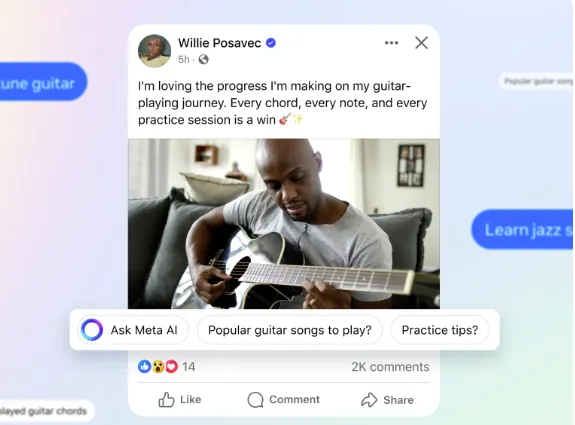Users may not be overly excited about Meta’s new AI chatbot, but it’s pushing it out anyway, with Indian users now set to experience the wonder that is Meta’s most advanced AI chatbot tool.

Yes, after testing it with Indian users over the last few months, Meta is now rolling out its new AI search element to Indian users, beginning with English language queries.
Meta initially began testing its AI chatbot with Indian users back in April, but delayed an expanded roll-out due to the nation’s general elections.
But now, Meta is expanding access to the tool, which will bring its Llama 3 powered chatbot to Facebook’s biggest user nation, where 378 million people access the platform every month.
But do people really want it?
Reception for Meta’s AI chatbot has been mixed, with many users expressing frustration in trying to conduct a basic search in the app.
Part of the problem here could be that Facebook’s older user cohort may be confused as to what the new AI search functionality actually is, and how it works, leading to less than satisfactory results in their efforts.
For its part, Meta is aware that some people are not entirely sold on its new AI search and creation tools, but it’s betting that, in the long-term, people will come around.
But I’m not so sure. Because while the increasing capacity of AI provides a range of new possibilities, Facebook is probably not where you really need them. Like, do you really need prompts like this on Facebook posts, trying to guide you through a related search?

Overall, this points to the larger problem with AI in social apps, in that, really, there’s no obvious place for generative AI tools within platforms that are designed to facilitate human-to-human engagement.
You could, of course, argue that social media apps have evolved beyond this use case, and are now as much about entertainment as social connection. But the insertion of generative AI, which simulates human responses and activities, still seems largely intrusive. And while there is some novelty value, there’s seemingly not much more beyond that.
But the platforms keep telling us that this is the future, this is the next big thing, this is how we’re all going to interact, so we better get used to it.
Is it an improvement? I don’t know, but that also seems irrelevant in most of the broader AI debates.

